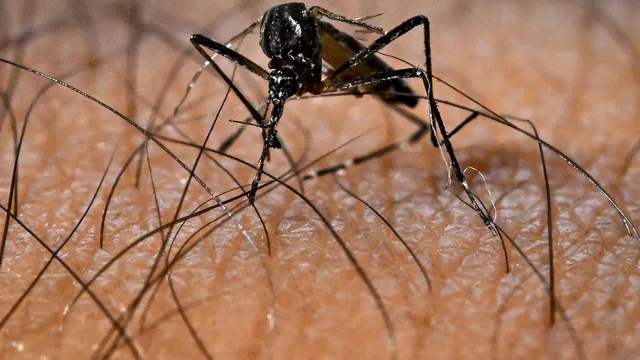Dengue and chikungunya diseases may soon become endemic in Europe as the tiger mosquitoes that carry these viruses spread further north due to global warming. This is according to a new research.
Approximately half of the world's population is now at risk of contracting the two diseases, which until recently were mainly found in tropical regions.
Both viruses cause fever and in rare cases can be deadly. They are spread by the Aedes aegypti and Aedes albopictus mosquitoes, AFP reports.
The latter, known as the tiger mosquito, is spreading further north as the world warms due to man-made climate change.
The new study, published in the journal Lancet Planetary Health, analyses the impact of a number of factors, including climate, on the spread of the two diseases in Europe over the past 35 years.
According to the study, the frequency and severity of outbreaks have increased since 2010 as temperatures have risen.
Yet in 2024, the hottest year on record, the EU recorded just over 300 cases of dengue compared to 275 in the previous 15 years.
Dengue outbreaks have already affected Italy, Croatia, France and Spain.
"Our findings highlight that the EU is moving from sporadic outbreaks of Aedes-borne diseases to an endemic state," the report said.
The higher the temperatures, the greater the risk of outbreaks caused by tiger mosquitoes, says the European research team.
Under a worst-case climate change scenario, outbreaks of both diseases could increase to five times the current number by 2060, they predict.
Outbreaks are more common in wealthier areas, suggesting that better tests are able to detect the virus - and that cases may go undetected in poorer areas, the research suggests.
The French Indian Ocean island of Réunion recently experienced a deadly chikungunya outbreak.
Tiger mosquitoes can also carry the Zika and West Nile viruses, which were not studied in the latest study. | BGNES

 Breaking news
Breaking news
 Europe
Europe
 Bulgaria
Bulgaria







